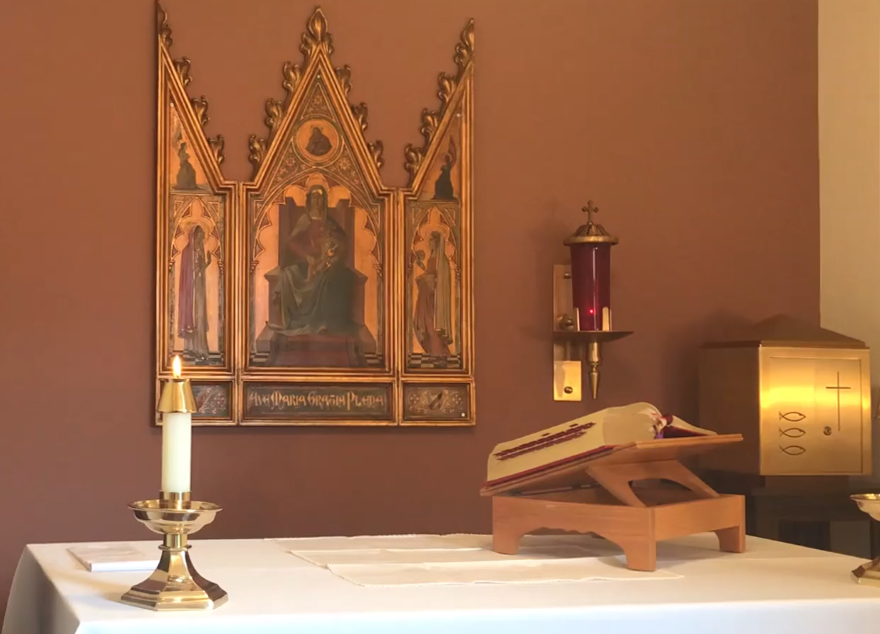
REFLECTIONS ON SPIRITUAL COMMUNION
By: Bishop Edward J. Weisenburger
In his 2003 Encyclical Letter, Ecclesia de Eucharistia, Pope St. John Paul II offers a beautiful instruction on the Eucharist as the center of our life in Christ. In these days of set back and confinement when we are unable to receive Holy Communion in the usual way, his words can be a support and encouragement.
Pope St John Paul II reminds us that having the constant desire for the Sacrament of the Eucharist was the origin of the practice of “spiritual communion.” He explains that it was a practice in the Church for centuries and recommended by saints who were masters of the spiritual life. (#34) The practice continues today and is especially pertinent in times such as these when we are prevented from receiving Holy Communion.
Making an Act of Spiritual Communion is a source of grace. Spiritual Communion means uniting one’s self in prayer with Christ’s sacrifice and worshiping him in his Body and Blood. Historically, the most common reason for making an Act of Spiritual Communion was when one could not attend Mass, or even if at Mass, was not able to receive Communion.
Acts of Spiritual Communion increase our desire to receive sacramental Communion and help us avoid the sins that would make us unable to receive Holy Communion worthily. While these acts of Spiritual Communion can be expressed in our own words including the intention to unite ourselves to the sacrifice of Christ, the following prayer from St. Alphonsus Liguori is provided here.
My Jesus, I believe that you are present in the Most Holy Sacrament. I love you above all things and I desire to receive you in my soul. Since I cannot at this moment receive you sacramentally, Come at least spiritually into my heart. I embrace you as if you were already there and unite myself wholly to you. Never permit me to be separated from you. Amen.
Pope St. John Paul II concludes his letter on the Eucharist with these words. “In the humble signs of bread and wine, changed into his body and blood, Christ walks beside us as our strength and our food for the journey, and he enables us to become, for everyone, witnesses of hope. If, in the presence of this mystery, reason experiences its limits, the heart, enlightened by the grace of the Holy Spirit, clearly sees the response that is demanded, and bows low in adoration and unbounded love. Let us make our own the words of Saint Thomas Aquinas, an eminent theologian and an impassioned poet of Christ in the Eucharist, and turn in hope to the contemplation of that goal to which our hearts aspire in their thirst for joy and peace: Bone pastor, panis vere, Iesu, nostri miserere... Come then, good Shepherd, bread divine, Still show to us thy mercy sign; Oh, feed us, still keep us thine; So we may see thy glories shine in fields of immortality. O thou, the wisest, mightiest, best, Our present food, our future rest, Come, make us each thy chosen guest, Co-heirs of thine, and comrades blest With saints whose dwelling is with thee.”

Very moving words. Thank you!